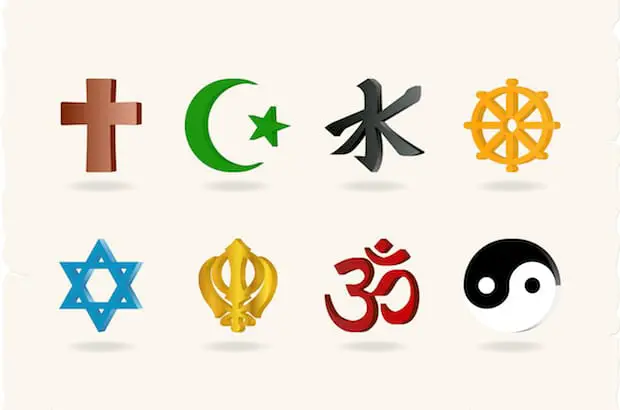Faith and spirituality have always been a part and parcel of human life.
In our wide interconnected and multifaceted world, people have been known to look for various ways to navigate the complex human belief system.
Omnism and universalism are two ideologies among many used to understand spirituality.
Both belief systems, while sharing similarities, share sharp contrasts in their applications and core principles.
In this post, I will delve deep into the differences between Omnism and universalism.
What is Omnism?
Omnism can be simply referred to as an ideology that respects or believes all religions.
It revolves around the idea that every religion in the world contains some level of wisdom and universal truth and that no ideology is necessarily right or wrong.
So, in essence, omnism isn’t a religion but rather, a sense of spirituality.
It is not a specific faith practiced by certain churches or religious sects.
It doesn’t contain any kind of theology and the people who practice it (Omnists) formulate their ideas about it.
What is Universalism?
Universalism is a philosophical or theological concept that goes beyond the confines of any specific religion in the world.
The concept focuses on the belief that everybody will be saved in the end by a Higher Power.
There are several tenets within universalism. For instance, Christian universalism claims that every individual will ultimately receive salvation in a spiritual or religious sense.
Others claim that everyone will be reconciled to God whether they have faith in him or not.
What are the differences between Omnism and Universalism?

Omnism and universalism share some things in common. They have similar values in terms of open-mindedness, inclusivity, and respect for diversity.
However, the ideologies have the following differences.
1. Core principles
The biggest difference between Omnism and Universalism is their foundation principles.
The former concerns itself with the acknowledgment and respect of all belief systems.
Omnism essentially lets people develop their own spirituality and faith without being constrained by established dogmas.
It emphasizes personal exploration and features a more individualistic path.
Universalism, on the other hand, while being inclusive features some contrasts with Omnism.
Its core idea centers on the subject of universal salvation.
The ideology essentially applies certain principles from all belief systems.
It strongly emphasizes collective unity and encourages the creation of communities where individuals from varied backgrounds can unite and pursue a common goal.
2. Practice of the ideologies
Another key difference between Omnism and universalism is the way both ideologies are practiced.
Believers of the former belief system do not have a specific church or religious sect.
They also don’t abide by any theology or religious sect. They simply believe in all religions.
Some may attend a religious gathering while others do not.
Another kind believes in hell but that God, in his infinite mercy, will not allow people to perish in hell.
Universalists have been known to belong to some kind of religious organization.
Christian Universalists attend the church and believe that people will be reconciled to God if they believe in Jesus Christ.
The ideology is ingrained in the religions of the world in one way or another.
This includes Hinduism, Buddhism, Orthodox Christianity, and more.
3. Structure differences
As said earlier, Omnism is an open-minded belief system that respects all religions.
It essentially has no structure. There’s no church, religious text, or theology.
In contrast, Universalism features a specific structure. For instance, Unitarian Universalism is based on eight principles.
These include things like justice and equity for all, acceptance of one another, world peace, and worth for every man.
Christian Universalism also features a structure as do other Universalists.
To Wrap Up
In our complex world, Omnism and Universalism offer key perspectives on navigating belief and spirituality.
While having differences, both ideologies emphasize the richness of faith and help us foster a world where everyone feels accepted and included.
Whether you are an Omnist or Universalist, respect for people and their belief systems is paramount.
Also check: Omnism vs Pantheism: What’s The Difference?

